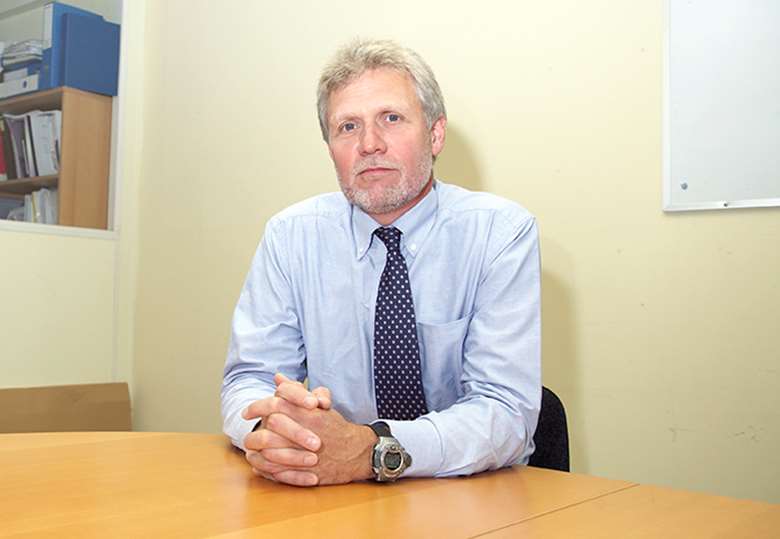Children in care need a minister for children that is crazy about them
Jonathan Stanley
Monday, September 4, 2023
Stability brings opportunity to “build consistent relationships with carers, friends, and teachers. This is “what makes the biggest difference to their lives”.

“Stable relationships are the platform on which children in care can build their lives and achieve their potential. Children themselves say that stability is the most important aspect of their experience of care. Consistent, high-quality relationships are important – they enhance feelings of security, support their ability to form relationships as they grow into adults, and enable the development of a sense of belonging and identity.”
“Instability in experiences of care reduces the opportunity … to form and maintain secure relationships.”
A child is quoted in the Children’s Commissioner Stability Index launch document, “if you move places constantly you will never feel safe in a secure home. If you move about a lot, you can lose trust in people.”
As the Care Review promoted ‘Relationships Matter’. Placement moves adversely affect relationships. It applies to the minister for children too.
The post of minister for children – a stepping stone? It needs to be a commitment.
“Placement moves may be an inevitable process in some cases, as a child’s case progresses through the system. Placement moves may also sometimes be in the child’s best interests, and children may themselves desire a move when a placement is not working out or as needs change. When managed appropriately, a change of placement may be a positive step for the child. Nonetheless, the improvement of stability in the care system is an important objective for all local authorities”.
It might be that a minister for children needs to move. Is it in the best interests of the minister or children in care?
Stability of the minister for children is an objective for government.
High instability is defined in the Children’s Commissioners Index as “the experience of multiple placement moves in a year, or a mid-year school move, or multiple social worker changes in a year”.
Let’s look at the recent postholders and their period of office (and thereby preoccupation and attentiveness with children in care)
David Johnston is the tenth person to hold the role of children’s minister since 2012 and the seventh since the last election in December 2019:
-
David Johnston Aug 23-Present
-
Claire Coutinho Oct 22-Aug 23
-
Kelly Tolhurst Sept 22–Oct 22
-
Will Quince Sept 21–July 22
-
Vicky Ford Feb 20–Sept 21
-
Kemi Badenoch July 19–Feb 20
-
Nadhim Zahawi Jan 18–July 19
-
Robert Goodwill June 17–Jan 2018
-
Edward Timpson Sept 12–June 17
-
Tim Loughton May 10–Sept 12
This is a record of high instability.
And added to this must be the knowledge and experience of the post holder. Tim Loughton and Edward Timpson demonstrated both often and strongly.
Urie Broffenbrenner proposed “Every child needs at least one adult who is irrationally crazy about him or her.”
To help meet a child’s needs, the primary caregiver should also have the support of another adult, such as a spouse or grandparent, and we might add government. Well-being is a verb.
Broffenbrenner describes how the necessary supports to rearing healthy children break down amidst the chaos and hectic pace of modern society.
Government is one the most powerful ‘circles of influence’.
This Broffenbrenner term determines the make-up of the immediate life space of a child. A key question is, ‘Does this circle of influence create stress or offer support for the child?’ With this perspective we might critically appraise government this year’s removal of care for older children in care.
The minister for children is the lead corporate parent of the country – it is not a delegated responsibility.
Being a corporate parent means not someone ‘looking after’ children but all of us taking our responsibility for caring for all our children. It means the children in our country’s care have all of us as parents. It matters when it can feel as though there’s no one else in the world to find there are family members with the means to support you in the way you need, who will ‘go that extra mile’.
Corporate parenting responsibility extends as wide and deep and high as the minister for children.
Everybody needs someone who is crazy about them, who knows what makes them tick, the person who changes their life forever just by knowing them, who encourages them to imagine and look forward, the person who makes all the difference. This kind of human magic happens every day in children’s homes across our country. Our children’s homes need someone who is crazy about them too.
A very practical way of the new minister for children ensuring stability in the residential child care workforce.
In this cost-of-living crisis it is the low paid who are being forgotten.
Residential child care is a low pay sector – this needs to change to avoid people being pushed and pulled out of residential child care as they look for incomes to meet spiralling prices.
NCERCC has approached the TUC to make the case for children’s social care to be included in their campaign for social care.
In the meantime, the minister for children lobbying the Treasury to make tax benefits to residential child care workers the same as for foster carers will be an evidenced commitment to all children in care and their care givers.
This will take strong advocacy and will require the insistency, persistency and consistency that comes with a long period of office.
Stability matters.
Jonathan Stanley is director of the National Centre for Excellence in Residential Child Care (NCERCC). This blog was first published on the NCERCC website.




